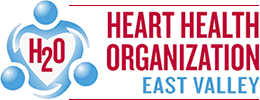
Allergy Medicine for High Blood Pressure: How to Choose Safely
Allergy Medicine for High Blood Pressure: How to Choose Safely
Finding a safe allergy medicine for high blood pressure (also known as hypertension) can be tricky if you don't know what to look for. Don't make the mistake of assuming that a product is safe for everyone just because it's available without a prescription. Many medications marketed for allergy treatment can raise your blood pressure, which isn't desirable if yours is too high to begin with.
Avoiding medications that can worsen hypertension starts with reading the labels carefully. Here are some tips to help you select a safe medication for your allergies:
Allergy Medicine for High Blood Pressure: How to Choose Safely
Most medications that can help to clear a stuffy nose or clogged sinuses contain medications known as decongestants, which may raise your blood pressure. Decongestants are most likely to affect your blood pressure if you take them by mouth (oral medication), however, this can even happen when you use them in the form of a nasal spray. Some examples of ingredients to look out for when reading labels include phenylephrine, pseudoephedrine, and oxymetazoline.
Look for labels with the letter "D" in the name
Many of your favorite brands of allergy medication have more than one version. The basic version is mainly for classic allergy symptoms such as runny nose and sneezing – the only medicinal ingredient they contain is called an antihistamine. Examples of these are Allegra, Claritin, and Zyrtec. These will not affect your blood pressure at all. You may also see another version that advertises itself as not only good for allergies but good for relieving stuffy nose and sinus issues, too. Examples of these include Allegra-D, Claritin-D, and Zyrtec-D. The ones with the D are the ones to avoid if you have high blood pressure.
>Read the warnings and cautions on the label before choosing an allergy medicine for high blood pressure
Any allergy medication that could raise your blood pressure should have a warning on the label that says so. These warnings are usually in very small print, though.
Read the ingredient list and check if it contains anything classified as a decongestant
If you're unsure whether or not a medication contains a decongestant, read the ingredient list and check. Often it's not only the name of the medication that's listed, but the category that it belongs to as well ( for example, "decongestant").
Check with your doctor or pharmacist before taking any new allergy medicine for high blood pressure
If you've read the labels carefully and chosen a medication that isn't advertised for stuffy nose, does not have a "D" added to the end of your favorite brand name, has no warnings about high blood pressure on the label, and does not say it contains a decongestant, the odds are high that you've found a product that's safe even if you have hypertension.
If you don't get sufficient relief from a safe allergy medication, you may also want to experiment with running a humidifier to help relieve clogged sinuses, or using a saline nasal spray/rinse.
Before you try any new product, it's always a good idea to make 100% sure that it's safe for you to take by checking with your doctor or pharmacist.
Source: https://hearthealthaz.org/allergy-medicine-for-high-blood-pressure-how-to-choose-safely
Posted by: spainhourmacsays.blogspot.com


0 Komentar